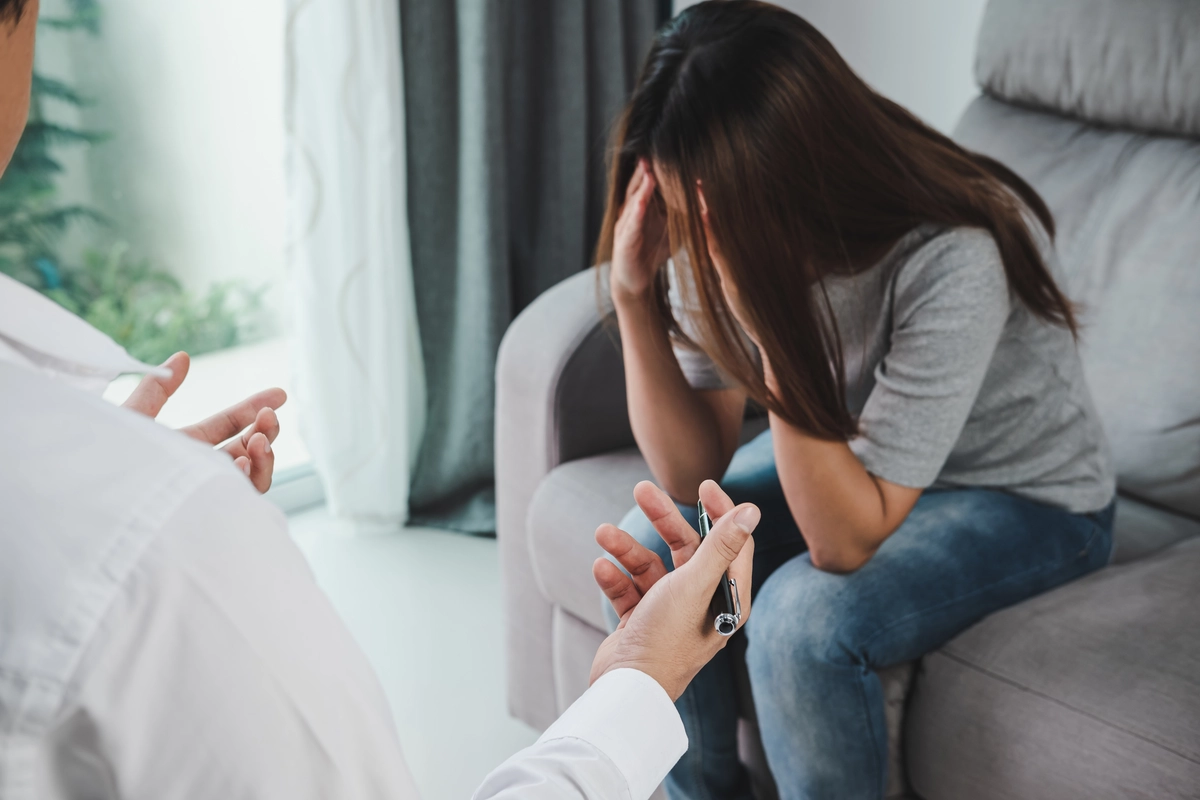24/7 Helpline:
(866) 899-221924/7 Helpline:
(866) 899-2219
Learn more about PTSD Treatment centers in Grant County

Other Insurance Options

Holman Group

UnitedHealth Group

Kaiser Permanente

Private insurance

Magellan Health

Absolute Total Care

Ceridian

GEHA

BlueCross

AllWell

Choice Care Network

BlueShield

Amerigroup

WellCare Health Plans

Optum

Anthem

PHCS Network

Highmark

Covered California

Health Partners

Valley Hope of Grapevine
Located between Dallas and Fort Worth, Valley Hope provides a full continuum of care including medic...

Northern Wyoming Mental Health Center
Northern Wyoming Mental Health Center provides Outpatient Services in Sheridan, Ranchester and Dayto...

Volunteers of America Northern Rockies – The Gathering Place
Volunteers of America Northern Rockies - The Gathering Place is a residential treatment center that ...

Northern Wyoming Mental Health Center – Psychosocial Rehabilitation Program & Psychiatric Services
Northern Wyoming Mental Health Center – Psychosocial Rehabilitation Program & Psychiatric Services i...










Human Development and Research
Human Development and Research is a private rehab located in Sheridan, Arkansas. Human Development a...

The Pointe Outpatient Behavioral Health Services – Sheridan
The Pointe Outpatient Behavioral Health Services – Sheridan is a drug and alcohol rehab in Sheridan,...

WestCare – Sheridan Correctional Center
WestCare–Sheridan Correctional Center is a drug and alcohol rehab program for incarcerated adult men...

AA – Alcoholics Anonymous
AA – Alcoholics Anonymous is a non-profit rehab located in Grapevine, Texas. AA – Alcoholics Anonymo...

Volunteers of America Northern Rockies – The Life House
Volunteers of America (VOA) Northern Rockies offers their The Life House program that provides subst...

Big Horn Mountain Recovery Center – Residential Home
Big Horn Mountain Recovery Center – Residential Home is a private rehab located in Sheridan, Wyoming...

Life Quest
Life Quest is a private rehab located in Sheridan, Wyoming. Life Quest specializes in the treatment ...

Mountains Edge Counseling
Mountains Edge Counseling is a private counseling clinic located in Sheridan, WY. Mountains Edge Cou...

Big Horn Mountain Recovery Center
Big Horn Mountain Recovery Center is a private rehab located in Sheridan, Wyoming. Big Horn Mountain...

Piedmont Psychological Practice
Piedmont Psychological Practice is a private, professional group clinic that offers behavioral healt...

Volunteers of America Northern Rockies – Men’s Recovery Home
Volunteers of America Northern Rockies - Men's Recovery Home provides men, age 18 and older, with a ...

Volunteers of America Northern Rockies – Female Recovery Home
Volunteers of America Northern Rockies - Female Recovery Home provides women, age 18 and older, with...































































































































